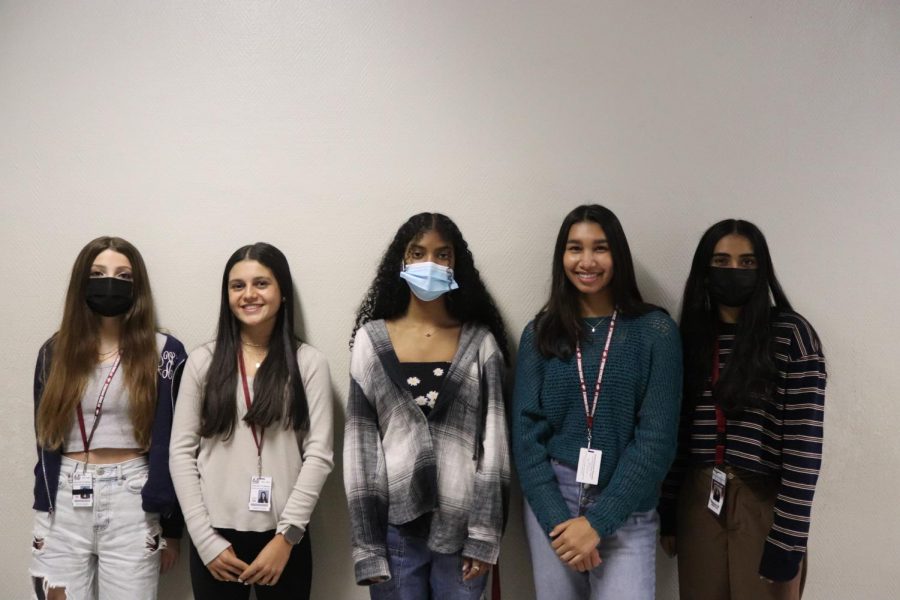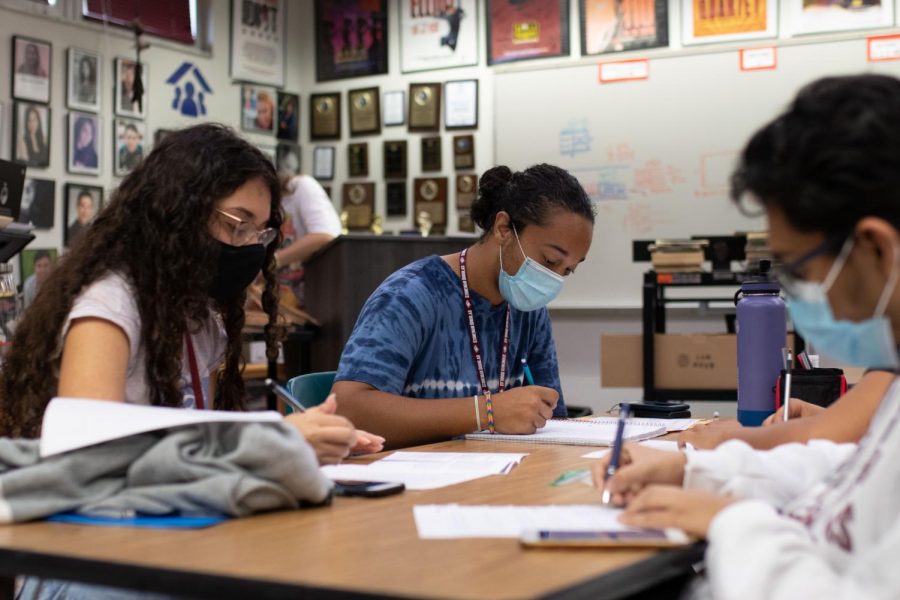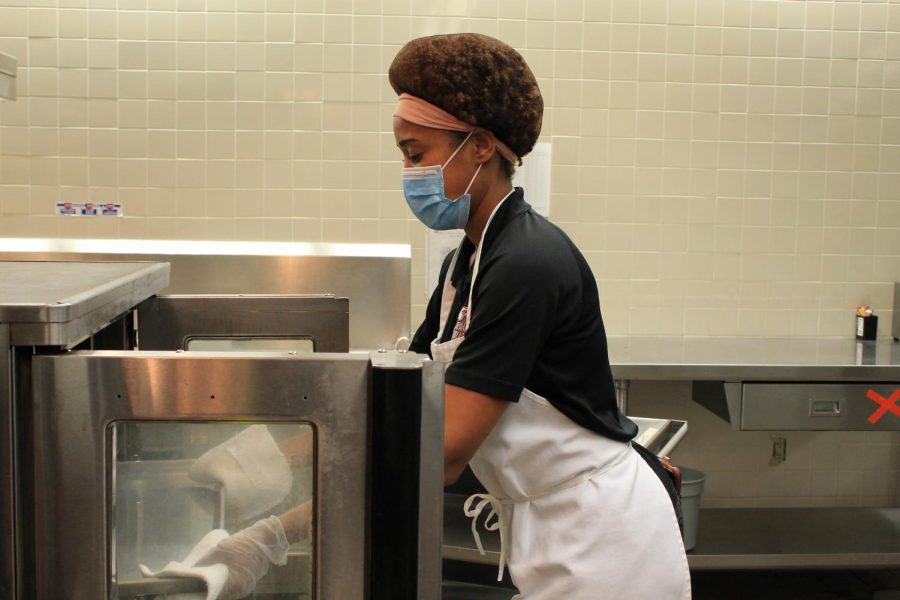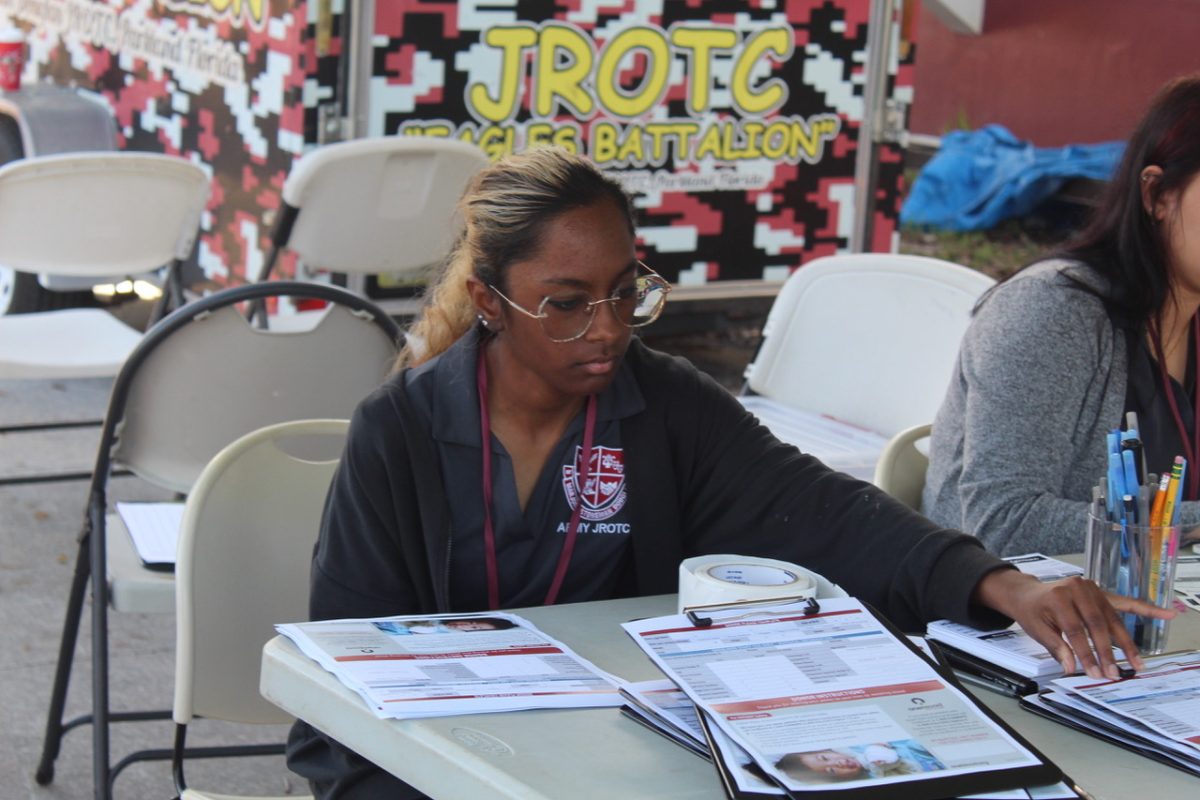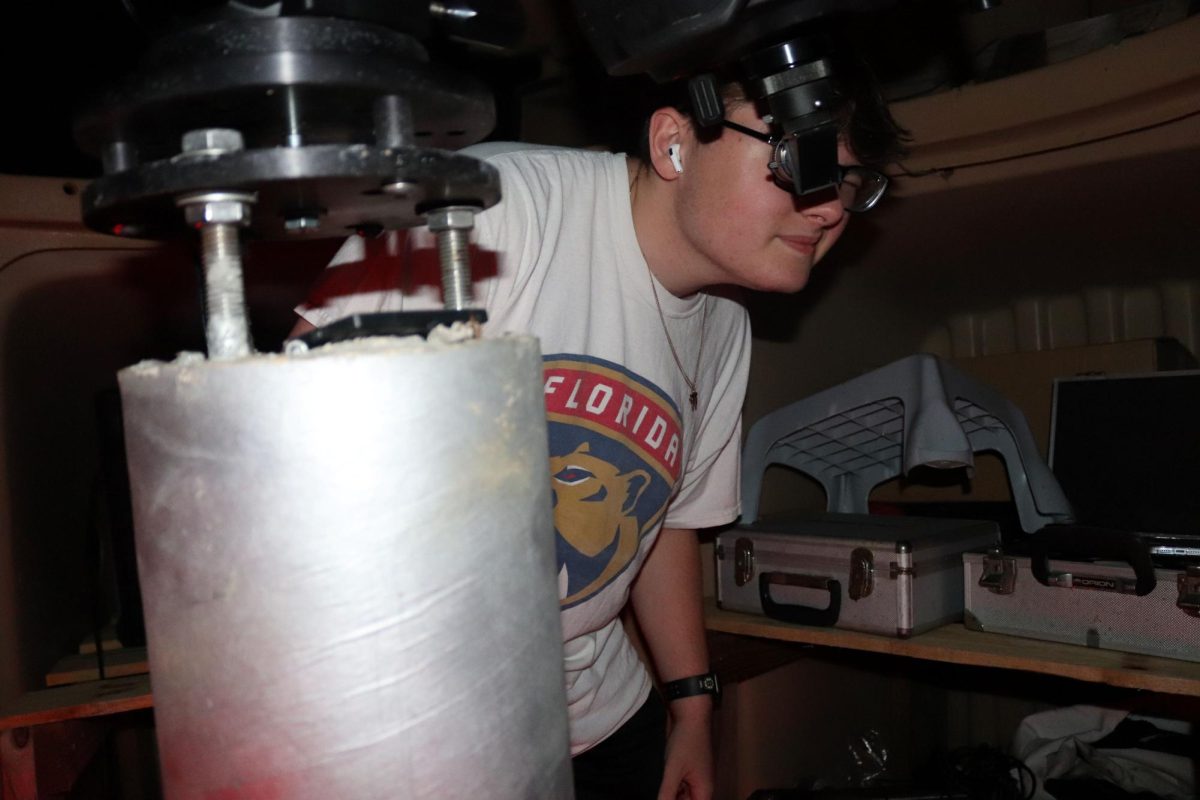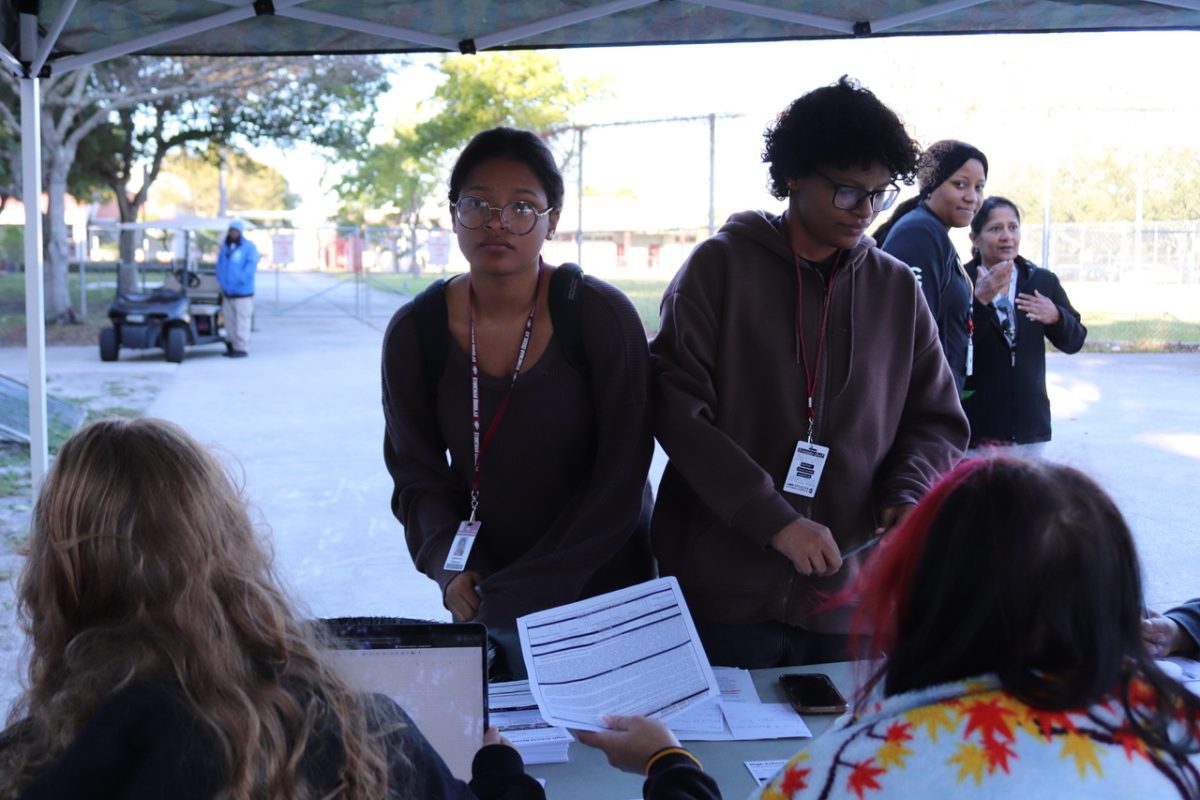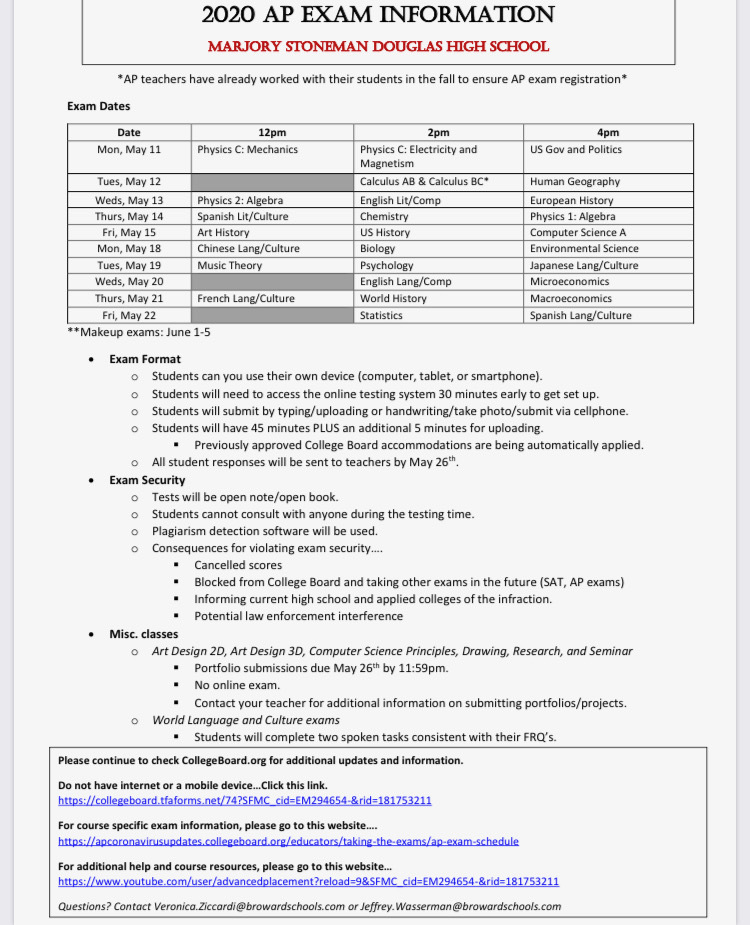
The fast-changing and life-altering coronavirus crisis has forced a number of quick adaptations to every part of the education system. On April 3, the College Board announced that they would be adapting the Advanced Placement Exams to be shorter, digital and focused on curriculum that most teachers had already covered before the pandemic began closing schools.
The decision to administer the AP Exams online came after a College Board survey returned that 93% of students wished to take the exams this year.
“Given the circumstances, I’m glad we’re at least having AP exams online,” senior Monique Miquel said. “It’s clear that [the] College Board and our teachers are working hard to give us the same opportunity we would typically have, and that means a lot.”
For 2020, the AP exams will all be 45 minutes in length. This is a drastic shortening from the usual exams, which are two to four hours in length, depending on the subject. There are two sets of dates for testing: the main testing dates, which are May 11-22 (each test has been pushed back about a week from its original administration date) and the make-up testing dates, which are June 1-5. Every student taking a test will take it in the same window of time to ensure fairness. The new testing schedule is available online.
The exams will all be administered digitally. After the 45 minutes to take the exam, students will have a five minute window to upload their answers. Responses may be submitted in a digital file, or uploaded as a photo if answers were written by hand. The test can be taken on nearly any device, but the student response must be uploaded on the same device from which the prompt was read. If there is more than one short-answer question as a part of an exam, these questions will be timed separately.
The digital administration of the exam has brought some concerns forth about technical issues.
“I’m concerned that there will be technical errors that [may] cause the disqualification of the entire test,” junior Daria Leonova said.
Other students had previously had technical problems during state testing before. Miquel echoed her concerns for the upcoming AP Exams as well.
“My worry for the online testing system surrounds typical technology problems—the server crashing or my computer freezing,” Miquel said. “We have a lot of difficulties taking EOCs and FSAs on school computers, so I do worry about having some issues with online AP Exams, too.”
The multiple-choice portion of each exam has been eliminated, in an effort to prevent cheating. Instead, the test will consist of one or more free-response questions. The number of questions varies per exam; for the AP English Literature and Composition Exam, there is one, whereas the AP United States Government and Politics Exam has two. These questions will be exclusively based on the curriculum which most teachers had already covered by early March. This is in an effort to ensure that students in all areas of the country have the same opportunity to succeed on the test.
At Marjory Stoneman Douglas High School, teachers are doing their best to adapt to the new format.
“I am going to prepare the students in a similar manner as most years, with those who have a full grasp of the material obviously having more success,” AP Government teacher Jeffrey Foster said. “I’d be remiss if I didn’t spend a ton of time on the two different FRQs, giving my students their best chance to maximize their results.”
Additionally, the exams will all be open-book this year. Students will be allowed access to class notes and class resources that they have accumulated over the year. However, communication during the test is strictly forbidden. The College Board has emphasized that they’re implementing serious anti-cheating methods to prevent student collaboration on the exams. They’ve also stated that if a student is caught cheating through collaborating with others, their college acceptance may be revoked.
To guarantee that students have access to quality reviews of the AP curriculum, the College Board is hosting weekly optional online classes and review sessions in all subjects. These reviews are hosted by teachers with knowledge of the exam. They are available on the Advanced Placement Youtube page.
“I have been attending some online prep sessions from the College Board,” Miquel said. “I find them very beneficial to help me focus on just the content I’ll need for the altered test. They’re great to take notes on too.”
The College Board will continue to release more information as the exams approach.
“It’s going to be strange,” Foster said. “But I’m elated that AP is allowing the students an opportunity to get credit for taking the class and passing the exam.”
This form of AP Exam is unprecedented, but then again, so are these circumstances.


